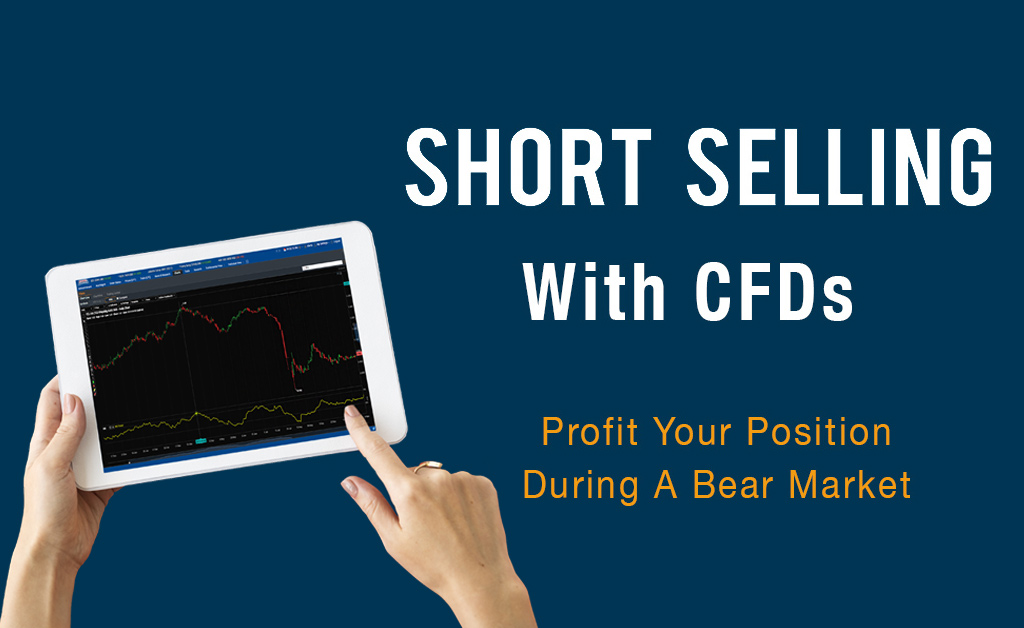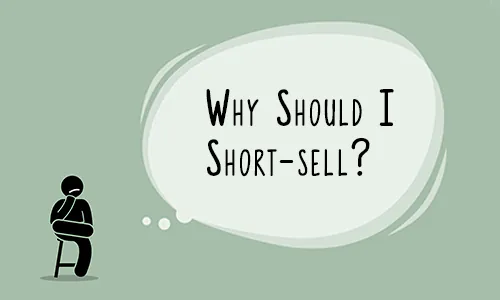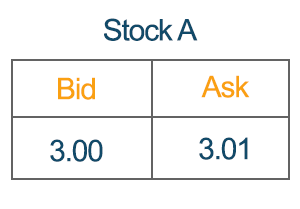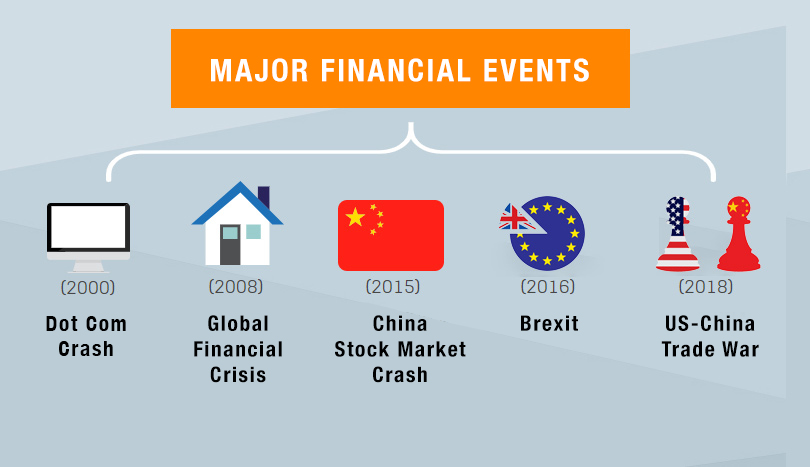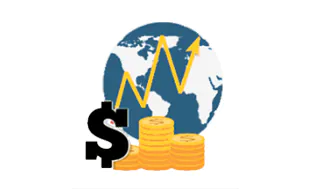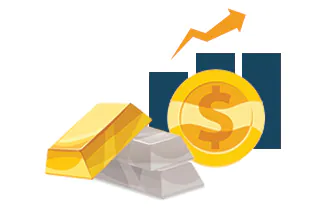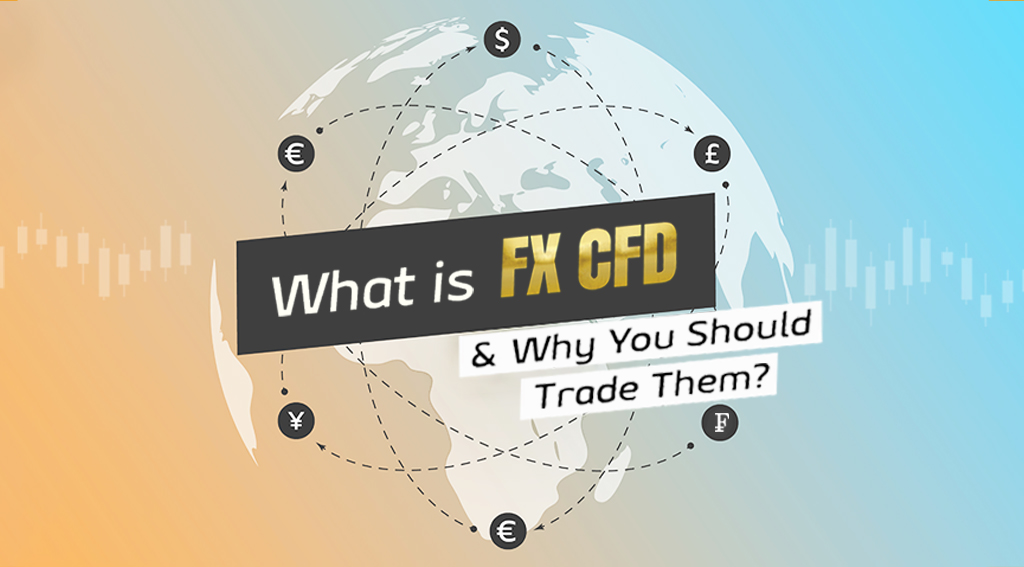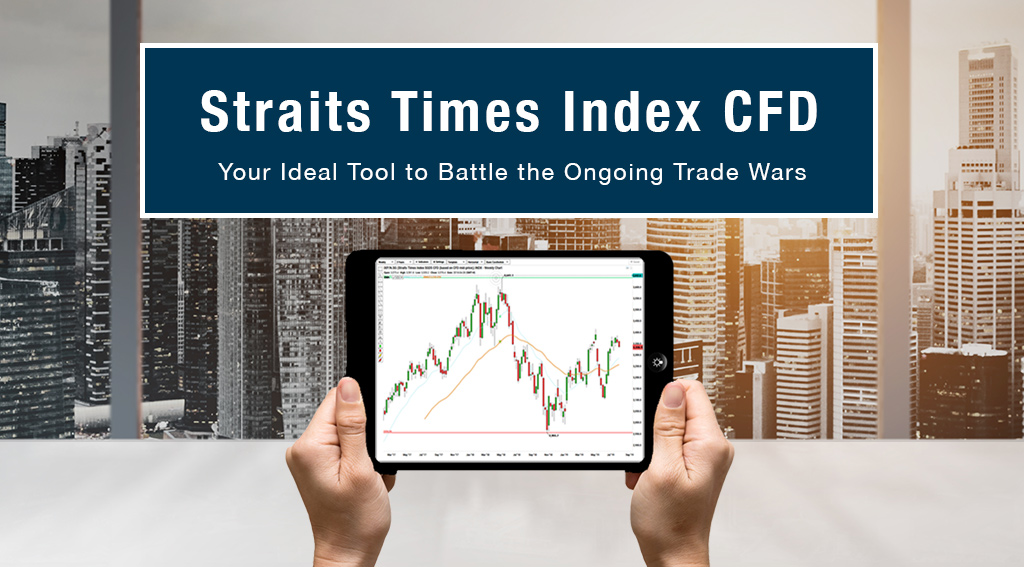It is evident that financial markets move in cycles. As the saying goes “What goes up, must come down”. Investors who spend time studying the price movement and cycles of the assets they intend to invest in could be rewarded with profits earned from uptrends and downtrends.
If you have never attempted short-selling before, maybe it is time to start as you are losing out on 50% of the opportunities in the market. Should you only stick to the traditional method of going “long”? Let us take a look at some reasons to short-sell!
Learn more about Short Selling
Benefits of Short-selling
As opposed to the traditional method of buying an asset at a low price and selling high, a short position is made when an investor sells a security first with the intention of repurchasing it later at a lower price.
Short-selling is a strategy that sometimes receives flak from conservative traders, citing reasons such as causing declines in asset prices and exacerbation of negative sentiments in the markets. However, instead of simply sitting back and cutting losses during a bearish market, you can turn the situation around and profit by capitalizing on falling prices. Some long-term investors use this feature as a hedging tool to protect their profits. They establish an opposite position to what they already have on stocks to prevent any losses due to short-term downtrend in the markets.
Example of short-selling:
Edwin currently holds a bearish view on Stock A. As he is not able to short-sell Stock A in the cash market without having to borrow the shares, he decides to use Contracts For Differences (CFDs) instead.
Stock A is currently trading at a price of $3.00. Edwin goes SHORT on 2,000 Stock A CFD at the Bid Price of $3.00.
A week later, the price of Stock A drops to $2.50 and Edwin decides to close his contracts. He closes his CFD position (BUYBACK) on Stock A at the Ask Price of $2.50. The total profit Edwin makes from this trade is ($3.00 – $2.50) * 2,000 = $1,000.
However, if a week later the price of Stock A goes up to $3.50 and Edwin decides to close his CFD position on 2,000 Stock A CFD at the Ask Price of $3.50, he would make a loss of ($3.00- $3.50) * 2,000 = $1,000.
Major Events that Shook the Financial Markets
Markets tend to be extremely volatile whenever there is a financial crisis. The market becomes bearish and stock prices plummet. This is where you can use short-selling to hedge against your portfolio and minimize your losses. Here are some of the major events that shook the financial markets.
- Dot Com Crash (2000)
In the early 1990’s, many tech companies were highly valued – and perhaps too much so. A tech bubble was formed when speculative investors poured money into internet-based companies without assessing their profitability. Irrational exuberance took hold with investors aggressively buying tech stocks and price-to-earnings ratio of the NASDAQ composite index rose to 200.1 When the bubble finally burst, most of the internet companies applied for bankruptcy due to their high cash burn rates and unsustainable business models.
- Global Financial Crisis (2008)
The 2008 Global Financial Crisis is widely acknowledged as the worst financial crisis since the Great Depression in 1929. Due to the availability of low credit post-2000, many homeowners took mortgages to purchase and build houses due to the expected rise in housing prices hoping to reap profits from their investment. Banks took the opportunity to bundle these mortgages into mortgage-backed securities. Subsequently, homeowners started to default, causing a rapid decline in asset prices. Stock markets lost more than $8 trillion in value and unemployment rose to an all-time high.2
- China Stock Market Crash (2015)
Between June 2014 and June 2015, the Shanghai Composite Index rose around 150%, reaching all-time highs. During that period, the Chinese government policy was to encourage its citizens to participate in the stock market. A lot of people started to leverage on their stock purchases – or rather commonly known as margin trading. As more leveraged money entered the Chinese stock market, the Chinese government started to introduce regulations to deleverage the market. Chaos soon ensued, with investors rushing to the exits. With stock prices crashing, margin calls inevitably happened, further exacerbating the sell-off. Even with government support and intervention, the stock market still ended 30% down after a tumultuous 3 weeks.3
- Brexit (2016)
A historic referendum in which U.K voted to leave the European Union. Brexit had huge implications for businesses in the U.K especially for those in the banking and financial services sector. Some banks started to make plans to shift out of London which was once considered the financial hub of Europe. With uncertainty in the market, the pound sank to a two-year low since Boris Johnson’s victory as British Prime Minister.4
- U.S China Trade War (2018)
The U.S. China Trade War is something that currently most people should be familiar with. In a bid to stop unfair trading practices with China, US President Donald Trump implemented tariffs on goods from China5. China did not sit back – they retaliated with tariffs of their own. Much of the market movements in the recent year have been due to tariff news – and it’s almost certain that if the trade war goes out of proportion, a downturn in the stock market will be imminent.
What Can I Short with CFDs?
One of the main benefits of trading Contracts for Differences (CFDs) is the ability to both long and short. Be sure to check out this article “Understanding Contract for Differences (CFD)” to understand the basics of CFD trading.
Here are some assets that are readily available to trade long and short on CFDs:
Stocks/Equities CFD
CFDs are commonly used by investors who want to short stocks. Most markets generally impose restrictions on short-selling for stocks – and it is inconvenient to initiate an equity short in the market. For instance, an investor would have to inform their broker of their intention to short and procure shares, and subsequently inform the broker when they have bought back the shares to settle the short.
CFDs circumvent all of these troublesome issues – all you need to do is to focus on what you want to long or short & initiate the trade. We’ll settle the rest for you. Another benefit of trading Equity CFD with us is being able to long and short more than 5,000 contracts in one account. Spreads are not quoted in addition to prevailing market prices.
For more information on our Equities CFD, kindly refer to the contract specification and pricing pages.
World Indices CFD
Indices are a great way to participate in the performance of an overall market if you do not want to go through the hassle of doing research on individual stocks. An extremely popular Index that many of our clients trade is the Straits Times Index SGD5 CFD (STI CFD). The Straits Times Index is a capitalisation-weighted stock market index that is commonly regarded as the benchmark index for the Singapore stock market. STI CFD can also be an ideal tool to battle the ongoing trade wars and it is a unique CFD product that we are proud to offer.
World indices CFD are useful as they tend to react quickly to major economic news so traders can easily trade them. Additionally, from a diversification standpoint, indices are less risky than individual stocks which have unsystematic risk – this risk can be largely eliminated if you purchase an index.
For more information on our World Indices CFD, kindly refer to the contract specification and pricing pages.
Commodities CFD
The commonly traded commodities are typically Gold, Silver and Oil. While most commodities are traded on futures, there are some benefits to trading commodities via CFDs. Unlike CFDs where you trade just on the price of the particular commodity, both parties on a futures contract must fulfil the conditions of the contract.
If you are not familiar with the futures contract and choose physical settlement instead of cash based settlement, you might end up with a truckload of oil barrels at your door!
For more information on our Commodities CFD, kindly refer to the contract specification and pricing pages.
FX CFD
Forex (FX) is the largest & most liquid financial market in the world. The largest volume of trades comes from traders who trade the currency pairs. The FX market is open 24 hours a day, 5 days a week.
Check out our newly launched FX CFDs where we offer very competitive spreads for some of the major currency pairs. To understand more about the basics of FX CFD trading, be sure to read our latest FX CFD article. Best of all? No commission and finance charges for opening your FX CFD positions with us!
For more information on our FX CFD, kindly refer to the contract specification and pricing pages.
Why Short Sell CFDs with POEMS?
The Current State of The Market
In 2020, the minds of investors have been grappled with a salient theme – the coronavirus. First detected in the city of Wuhan in the province of Hubei in China in December 2019, the virus has proved to be extremely infectious. It has since caused a global pandemic with over 1 million infected and over 70,000 deaths as of early April.
Covid-19 has caused major disruptions to economies, businesses and supply chains all over the world. Governments have started to enforce stricter containment measures with non-essential industries being closed off. The fear surrounding the impact of Covid-19 has weighed heavily on the bond and equity markets. Amidst the uncertainty and economic risks caused by the virus, the Federal Reserve eased their monetary policy stance and announced an emergency rate cut in March of 50 basis points, the first ever cut since 2008 in hopes of stimulating the economy. In the bond markets, we have seen U.S 10 year treasury yields drop to a historic low of around 0.3% as people bid treasuries up, and the S&P500 closed down around 20% for the first quarter of 2020, its worst quarter since the fourth quarter of 2008.
The stock market bull run has ended, and investors need to brace themselves for the reality of facing a bearish market. A bear market is not necessarily a bad thing if you have the necessary and available tools on hand to profit off.
What are CFDs and How Do You Open An Account?
Before starting to use CFDs, here are some terms about CFDs you should be familiar with.
Margin: Almost all CFDs are traded on margin in Phillip Securities Pte Ltd (PSPL). Essentially, each contract has a margin requirement attached to it. For instance, a CFD on DBS shares has a 10% margin requirement in PSPL. You would only need to deposit a margin of $1,000 in your CFD account to establish a CFD position with an exposure equivalent to $10,000 DBS shares. It is important to note that if you suffer unrealised losses that cause your account to dip below the maintenance margin, your broker will give you a call to top up your CFD account to maintain the position, commonly known as a margin call.
Leverage: Due to the nature of margin on CFDs, both gains and losses are magnified accordingly by the margin requirement of the contract. It is paramount for any investor to manage their risk accordingly – don’t take on more leverage than you can handle!
Stop-Limit Orders: Prudent traders use stop-limit orders on both their long and short positions to limit their losses. Stop-Limit Orders are triggered when the price of the CFD reaches a price specified by you. Before you even enter a trade, you should already have a stop-limit in mind. Whichever trading strategy you use, as long as you limit your losses, you’ll be likely to be profitable in the long run.
After understanding CFDs better, consider if it is suitable for you before adding it to your financial portfolio.
Open a CFD Account now!
Open a CFD account with us today! Everything can be done online, it’s that simple! If you are an existing POEMS account holder, simply opt-in for a CFD account on POEMS 2.0 and POEMS Mobile 2.0.
As per regulatory requirements, new customers to CFDs will need to complete a Customer Knowledge Assessment (CKA) and Risk Fact Sheet in order to trade CFDs.
What are the Perks of Opening a CFD Account with Us?
To help you start off your trading journey, here are some exclusive perks that you will enjoy as our client!
- As our client, you will receive exclusive Daily Trend Forecast Reports on Stocks, Indices, and Forex. Be updated with the latest market analysis and insights powered by Trading Central.
- What’s more, fund your new CFD account with a min of SGD5,000 within 2 weeks of account opening to enjoy up to 5 free CFD Trades* with us!
*T&Cs apply.
Be sure to check out our CFD Promotions Page to be updated with the latest deals and rewards!
CFDs are a great way to invest and trade in the markets and if used correctly, may potentially reap substantial returns from a small investment. Do reach out to us if you want to find out more about CFDs and we’ll be happy to share with you more about what we think about the market and interesting opportunities to capitalize on! There are also FREE CFD seminars that you can attend to learn more about this derivative product!
Begin your Trading Journey with us!
References
[1]https://www.nasdaq.com/articles/missed-internet-boom-heres-your-second-chance-2017-11-20
[2]https://www.thebalance.com/2008-financial-crisis-3305679
[3]https://www.theguardian.com/business/2015/jul/08/china-stock-market-crisis-explained
[4]https://www.straitstimes.com/business/british-pound-drops-against-singdollar-amid-fears-of-no-deal-brexit
[5]https://www.cnbc.com/2019/03/01/the-timeline-of-trump-china-tariffs-and-trade-war.html
Leave a comment
More Articles
What is FX CFD & Why You Should Trade Them?
What is FX CFD? How do you read a currency pair? What is a pip? Read on to find out the basics of forex trading and the top 5 reasons why you should trade FX CFD!
Understanding Contracts for Differences (CFD)
“What is CFD?” might be a question that has popped up into the minds of those that just recently got acquainted with the concept of investments.
Why trade Straits Times Index (STI) CFD?
Are you getting frustrated by the lacklustre performance of your trades and investments in your portfolio of Singapore stocks? Should you add STI CFD into your portfolio?
Disclaimer
This material is provided to you for general information only and does not constitute a recommendation, an offer or solicitation to buy or sell the investment product mentioned. It does not have any regard to your specific investment objectives, financial situation or any of your particular needs. Accordingly, no warranty whatsoever is given and not liability whatsoever is accepted for any loss arising whether directly or indirectly as a result of your acting based on this information.
Investments are subject to investment risks. The risk of loss in leveraged trading can be substantial. You may sustain losses in excess of your initial funds and may be called upon to deposit additional margin funds at short notice. If the required funds are not provided within the prescribed time, your positions may be liquidated. The resulting deficits in your account are subject to penalty charges. The value of investments denominated in foreign currencies may diminish or increase due to changes in the rates of exchange. You should also be aware of the commissions and finance costs involved in trading leveraged products. This product may not be suitable for clients whose investment objective is preservation of capital and/or whose risk tolerance is low. Clients are advised to understand the nature and risks involved in margin trading.
You may wish to obtain advice from a qualified financial adviser, pursuant to a separate engagement, before making a commitment to purchase any of the investment products mentioned herein. In the event that you choose not to obtain advice from a qualified financial adviser, you should assess and consider whether the investment product is suitable for you before proceeding to invest and we do not offer any advice in this regard unless mandated to do so by way of a separate engagement. You are advised to read the trading account Terms & Conditions and Risk Disclosure Statement (available online at www.poems.com.sg) before trading in this product.
Any CFD offered is not approved or endorsed by the issuer or originator of the underlying securities and the issuer or originator is not privy to the CFD contract. This advertisement has not been reviewed by the Monetary Authority of Singapore.

